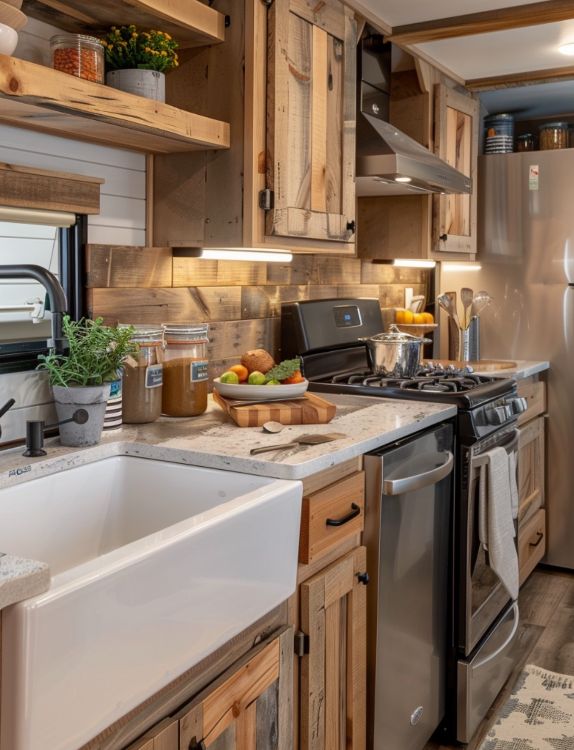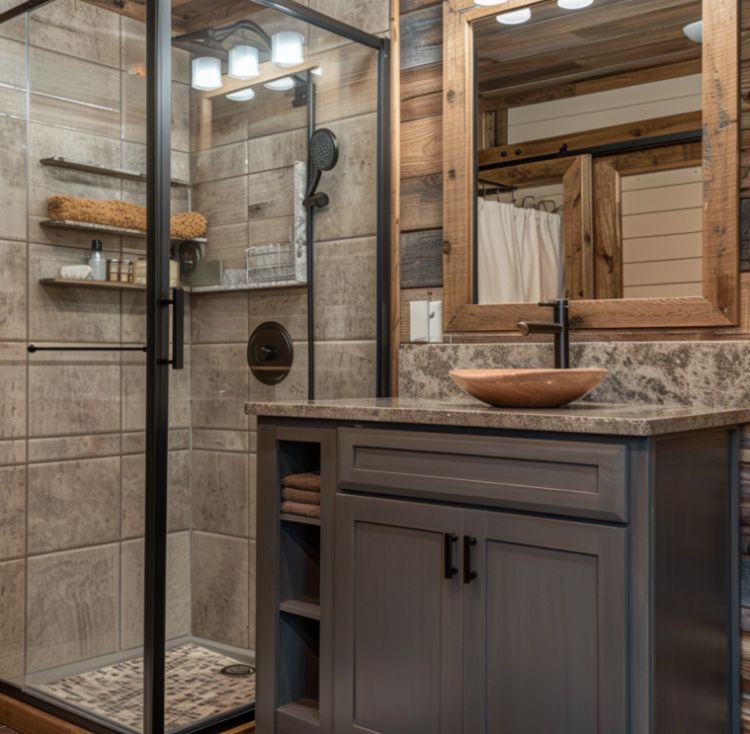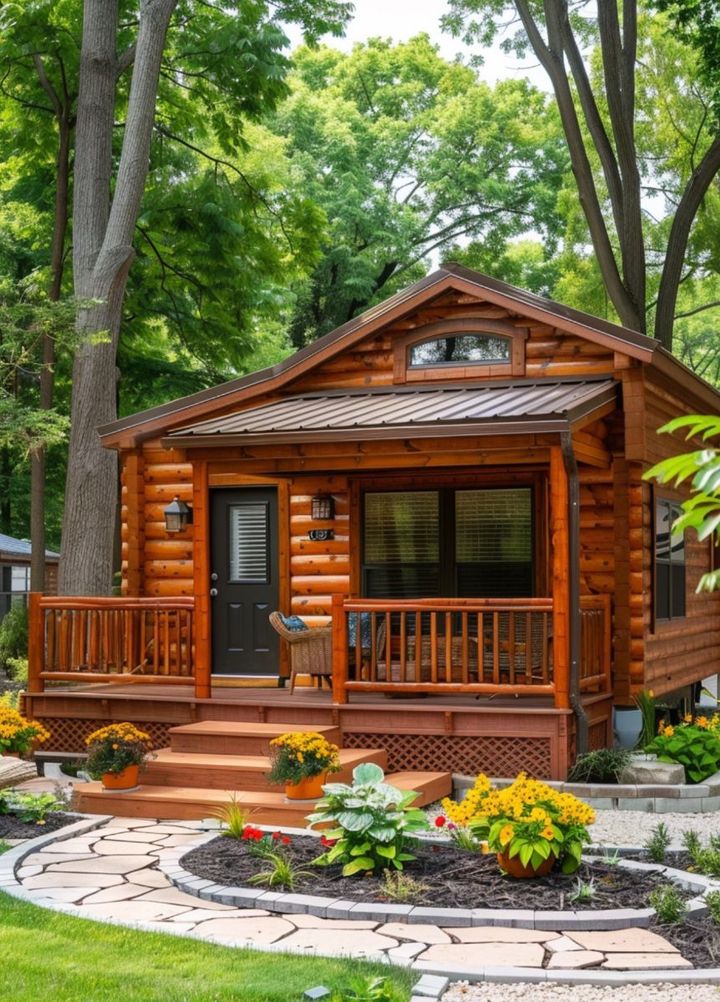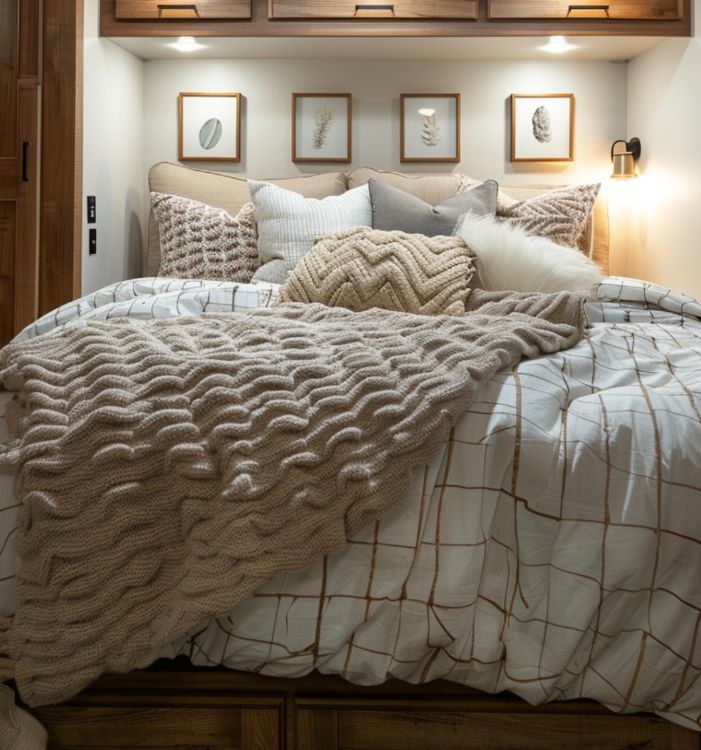When Linda’s life began to unravel, she tried everything to hold it together. A sudden illness forced her to leave her job, and without steady income, the bills quickly became impossible to manage. She watched her savings disappear, then her apartment, until she found herself bouncing between shelters and borrowed rooms. Once proud of her independence, Linda now carried her belongings in two worn bags, each day unsure of where she would sleep at night.
The fear was constant. She longed for a door she could close, a quiet space where she might rest without worry. But each morning, she woke with the same thought pressing down on her: Is this how the rest of my life will be?

Her turning point came when a neighbor she barely knew, a man named Caleb, learned of her struggles. Caleb was a carpenter who had spent years building homes for others. Quiet and kind, he decided Linda needed one of her own. With wood he had saved and the help of a few friends, he built a tiny cabin on a small plot of land at the edge of the forest. Then, one crisp afternoon, he invited Linda to see what he had created.
As she followed the winding path through the trees, Linda’s breath caught. There it stood—a tiny cabin glowing warmly against the backdrop of tall pines, its cedar siding golden in the sunlight. A porch stretched across the front, complete with a handmade chair carved from oak. Birds darted overhead, and the air smelled of pine and earth.
She opened the door with trembling hands and stepped inside. What she saw left her speechless.
The cabin was nothing like she expected. Instead of the bare-bones shelter she had imagined, it was breathtaking. Sunlight streamed through wide windows, flooding the space with warmth. Smooth wooden walls reflected the light, and the polished floor gleamed beneath her feet. A loft bed rested under the sloping roof, layered with thick quilts that promised comfort and rest. Below it, a cozy sofa sat beside a wood-burning stove, the scent of fresh cedar lingering in the air.

But it was the details that truly stunned her. The kitchen, though compact, felt elegant: a farmhouse sink beneath a window, counters smooth and gleaming, and shelves lined with dishes ready for use. In the corner, a small dining table stood beside the window, set with two chairs as if waiting for laughter and conversation.
The bathroom carried its own quiet luxury. Tiled walls glistened, and a skylight above filled the space with daylight. For Linda, who had spent months relying on public facilities, the privacy of her own bathroom felt miraculous.
Every corner carried the touch of Caleb’s hands. From the carved wooden handles on the cabinets to the handmade shelves stocked with books, the cabin radiated care and kindness. On the table, a vase of wildflowers and a handwritten note waited: You are home now.
Linda pressed her hand to her mouth as tears flowed freely. She had expected simple shelter. What she had been given was a sanctuary.
In the weeks that followed, Linda began to rebuild. She planted herbs on the porch, cooked meals that filled the cabin with warmth, and decorated the shelves with small treasures that made the space her own. Each morning, she woke to birdsong and the glow of sunlight streaming through the windows.
The tiny cabin in the woods wasn’t just a gift of wood and nails. It was a gift of hope, safety, and dignity—proof that even when life seems broken, kindness can build something extraordinary. For Linda, it wasn’t just a place to live. It was a chance to begin again.


Leave a Reply